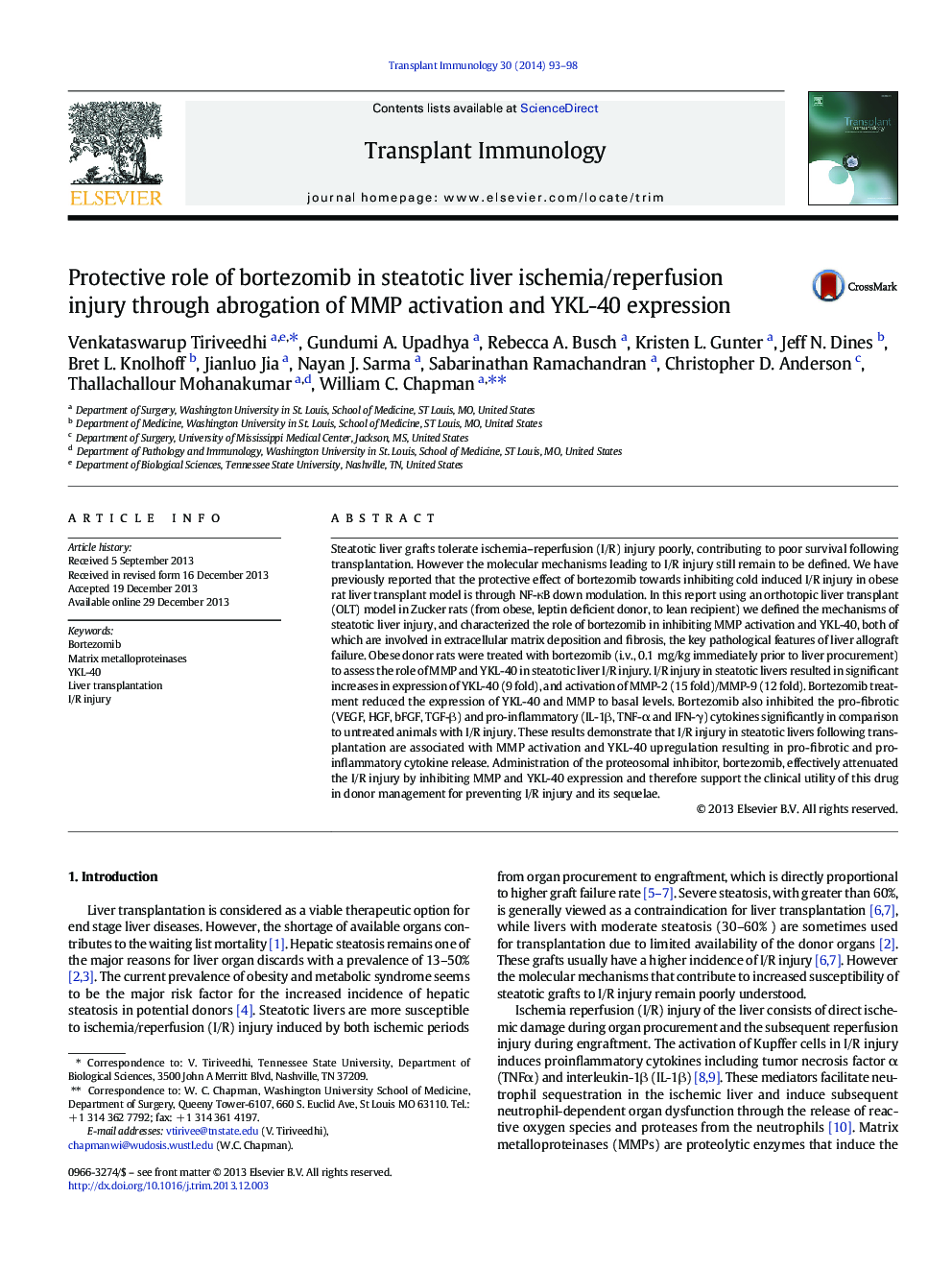| Article ID | Journal | Published Year | Pages | File Type |
|---|---|---|---|---|
| 3392122 | Transplant Immunology | 2014 | 6 Pages |
•I/R injury induces upregulation of pro-inflammatory and pro-fibrotic factors.•I/R injury induces upregulation of MMP-2/9 and YKL-40.•Bortezomib (PS-341) inhibits pro-inflammatory and pro-fibrotic damage.•Thus, PS-341 has potential therapeutic application in liver transplantation.
Steatotic liver grafts tolerate ischemia–reperfusion (I/R) injury poorly, contributing to poor survival following transplantation. However the molecular mechanisms leading to I/R injury still remain to be defined. We have previously reported that the protective effect of bortezomib towards inhibiting cold induced I/R injury in obese rat liver transplant model is through NF-κB down modulation. In this report using an orthotopic liver transplant (OLT) model in Zucker rats (from obese, leptin deficient donor, to lean recipient) we defined the mechanisms of steatotic liver injury, and characterized the role of bortezomib in inhibiting MMP activation and YKL-40, both of which are involved in extracellular matrix deposition and fibrosis, the key pathological features of liver allograft failure. Obese donor rats were treated with bortezomib (i.v., 0.1 mg/kg immediately prior to liver procurement) to assess the role of MMP and YKL-40 in steatotic liver I/R injury. I/R injury in steatotic livers resulted in significant increases in expression of YKL-40 (9 fold), and activation of MMP-2 (15 fold)/MMP-9 (12 fold). Bortezomib treatment reduced the expression of YKL-40 and MMP to basal levels. Bortezomib also inhibited the pro-fibrotic (VEGF, HGF, bFGF, TGF-β) and pro-inflammatory (IL-1β, TNF-α and IFN-γ) cytokines significantly in comparison to untreated animals with I/R injury. These results demonstrate that I/R injury in steatotic livers following transplantation are associated with MMP activation and YKL-40 upregulation resulting in pro-fibrotic and pro-inflammatory cytokine release. Administration of the proteosomal inhibitor, bortezomib, effectively attenuated the I/R injury by inhibiting MMP and YKL-40 expression and therefore support the clinical utility of this drug in donor management for preventing I/R injury and its sequelae.
